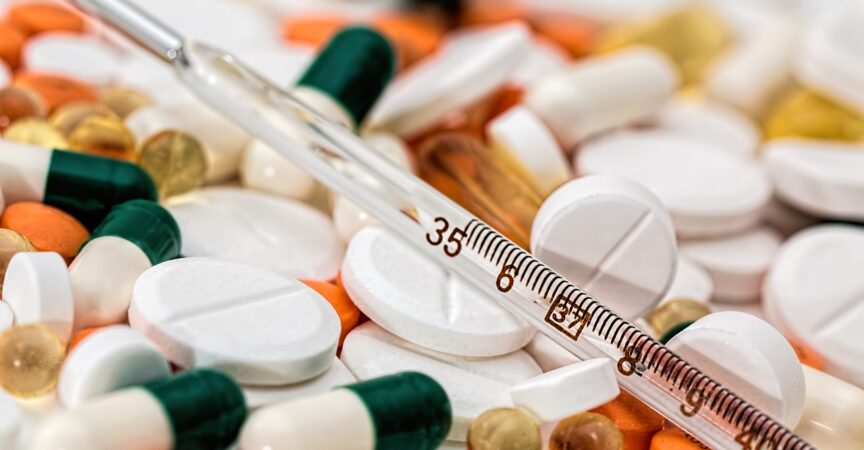Can I Drink Coffee While Taking Antibiotics
Coffee, a widely consumed beverage across the globe, is a favorite for many people who rely on its energizing effects to start their day.
While coffee itself poses no significant health risks for most individuals, it’s important to consider how it may interact with certain medications, such as antibiotics. In this comprehensive guide, we will discuss the relationship between coffee and antibiotics, the potential risks and benefits, and provide answers to frequently asked questions related to this topic.
The Role of Antibiotics
Antibiotics are medications prescribed by healthcare professionals to treat bacterial infections. They work by either killing bacteria or inhibiting their growth, thus helping your immune system fight the infection.
It’s crucial to follow your doctor’s advice and take the full course of antibiotics, even if you start feeling better before completing the treatment. This ensures that the bacteria are fully eradicated and reduces the risk of developing antibiotic-resistant strains.
Coffee and Antibiotics: A Complex Relationship
While there is no absolute rule against consuming coffee while taking antibiotics, the relationship between the two can be complicated. Here, we will explore the possible interactions, risks, and benefits of mixing coffee and antibiotics.
-
Caffeine and Antibiotic Absorption
One of the primary concerns regarding coffee consumption while taking antibiotics is its potential to affect the absorption of the medication. Caffeine, the primary stimulant in coffee, can sometimes interfere with the effectiveness of certain antibiotics. For example:
a. Tetracyclines: This class of antibiotics, including doxycycline and minocycline, can have their absorption reduced by the presence of caffeine. It is recommended to avoid consuming coffee within two hours of taking these antibiotics.
b. Fluoroquinolones: Antibiotics such as ciprofloxacin and levofloxacin can cause increased absorption of caffeine, leading to higher caffeine levels in the blood. This can result in increased side effects of caffeine, like jitteriness, rapid heartbeat, and insomnia.
-
Gastrointestinal Effects
Coffee is known to have a laxative effect on some individuals, and this may not be ideal when taking antibiotics. Diarrhea is a common side effect of some antibiotics, and consuming coffee may exacerbate this issue, leading to increased discomfort and potential dehydration.
-
Dehydration Risks
Both caffeine and antibiotics can contribute to dehydration, as caffeine has a diuretic effect, while certain antibiotics can cause diarrhea or vomiting. If you’re experiencing these side effects while taking antibiotics, it’s essential to drink plenty of water and consider reducing your caffeine intake to prevent dehydration.
-
Potential Benefits
Although there are some risks associated with consuming coffee while on antibiotics, there may also be potential benefits. For example, some studies suggest that caffeine may have antimicrobial properties, which could theoretically help in fighting infections. Additionally, the antioxidants found in coffee may help boost the immune system, further aiding the body in its fight against bacterial infections.
It’s important to note that more research is needed to fully understand the potential benefits of coffee consumption while taking antibiotics, and these benefits may not be significant enough to outweigh the potential risks.
Frequently Asked Questions
-
Can I drink coffee while taking antibiotics?
The answer depends on the specific antibiotic you’re taking and your individual response to caffeine. While it’s generally safe to consume coffee while on antibiotics, it’s important to be aware of potential interactions and side effects.
-
Which antibiotics should I avoid consuming with coffee?
Tetracyclines and fluoroquinolones are two classes of antibiotics that may have interactions with caffeine. Consult your healthcare provider for specific guidance regarding your medication.
-
How long should I wait between taking antibiotics and drinking coffee?
If your antibiotic is known to interact with caffeine, it is generally recommended to wait at least two hours between taking the medication and consuming coffee. However, it’s always best to follow your healthcare provider’s advice for specific instructions.
-
Can I drink decaffeinated coffee while on antibiotics?
Decaffeinated coffee contains significantly less caffeine than regular coffee and may be a safer option if you’re concerned about potential interactions. However, it’s still important to monitor your symptoms and consult your healthcare provider if you have any concerns.
-
Can I consume other caffeinated beverages while taking antibiotics?
Similar to coffee, other caffeinated beverages like tea, soda, and energy drinks may interact with certain antibiotics. It’s important to be aware of your caffeine intake from all sources and discuss potential risks with your healthcare provider.
-
What are some alternatives to coffee while I’m on antibiotics?
If you’re concerned about potential interactions between coffee and your antibiotic, consider consuming non-caffeinated alternatives such as herbal tea, caffeine-free soda, or hot water with lemon.
-
How can I manage the side effects of antibiotics without relying on coffee?
To alleviate fatigue while on antibiotics, try getting plenty of rest, maintaining a balanced diet, and staying hydrated. If you’re experiencing gastrointestinal side effects, consider consuming probiotics or eating yogurt to help restore your gut flora.
-
Can I consume alcohol while taking antibiotics?
It’s generally advised to avoid alcohol consumption while on antibiotics, as alcohol can interact with certain medications and may worsen side effects or reduce the effectiveness of the treatment.
-
How can I prevent dehydration while taking antibiotics?
To prevent dehydration, drink plenty of water throughout the day, especially if you’re experiencing side effects like diarrhea or vomiting. You may also consider reducing your caffeine intake and consuming electrolyte-replenishing drinks if needed.
-
Should I consult my doctor about drinking coffee while taking antibiotics?
If you’re unsure about whether it’s safe to consume coffee while on antibiotics, it’s always best to consult your healthcare provider. They can provide personalized guidance based on your specific medication and medical history.
While there is no one-size-fits-all answer to the question of whether you can drink coffee while taking antibiotics, it’s essential to be aware of potential risks and interactions. By understanding the relationship between coffee and antibiotics and consulting your healthcare provider, you can make informed decisions about your caffeine consumption during your treatment. Remember that each individual’s response to antibiotics and caffeine may vary, so always listen to your body and seek professional advice if you have any concerns.
Email Bülteni
Yeni yazılarımızdan hemen haberdar olmak için kayıt olun.







